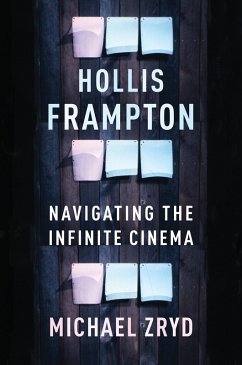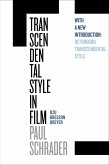Hollis Frampton was an American filmmaker, photographer, and theorist who bridged the experimental film and contemporary art worlds in the 1960s and 1970s. Best known for avant-garde films including Zorns Lemma (1970) and (nostalgia) (1971), Frampton spent his later years working on the unfinished epic Magellan, a monumental cycle that used the metaphor of Ferdinand Magellan's circumnavigation of the world to rethink the natures and meanings of history, modernity, and cinema. Frampton's career was cut short by cancer at age 48, with his vast ambitions for the project left incomplete.
This book is a groundbreaking and comprehensive account of this remarkable figure's work in its totality, from Frampton's earliest films through Magellan. Michael Zryd explores the connections linking Frampton's art and thought to other media forms, histories, and cultural frameworks. He foregrounds Frampton's notion of the "infinite cinema," which redefined the parameters of the medium to encompass all forms of moving image and sound media across the past and future of cinematic possibility. Zryd analyzes Frampton's ambivalent relationship with modernism and the Enlightenment, showing how the artist navigated between attraction to radical artistic investigation and awareness of this tradition's implication in colonialism and other oppressive power structures. Shedding new light on Frampton's project of exploring and critiquing how cinema attempts to capture and understand the world, this book also considers his significance for contemporary art.
This book is a groundbreaking and comprehensive account of this remarkable figure's work in its totality, from Frampton's earliest films through Magellan. Michael Zryd explores the connections linking Frampton's art and thought to other media forms, histories, and cultural frameworks. He foregrounds Frampton's notion of the "infinite cinema," which redefined the parameters of the medium to encompass all forms of moving image and sound media across the past and future of cinematic possibility. Zryd analyzes Frampton's ambivalent relationship with modernism and the Enlightenment, showing how the artist navigated between attraction to radical artistic investigation and awareness of this tradition's implication in colonialism and other oppressive power structures. Shedding new light on Frampton's project of exploring and critiquing how cinema attempts to capture and understand the world, this book also considers his significance for contemporary art.
Dieser Download kann aus rechtlichen Gründen nur mit Rechnungsadresse in A, D ausgeliefert werden.









